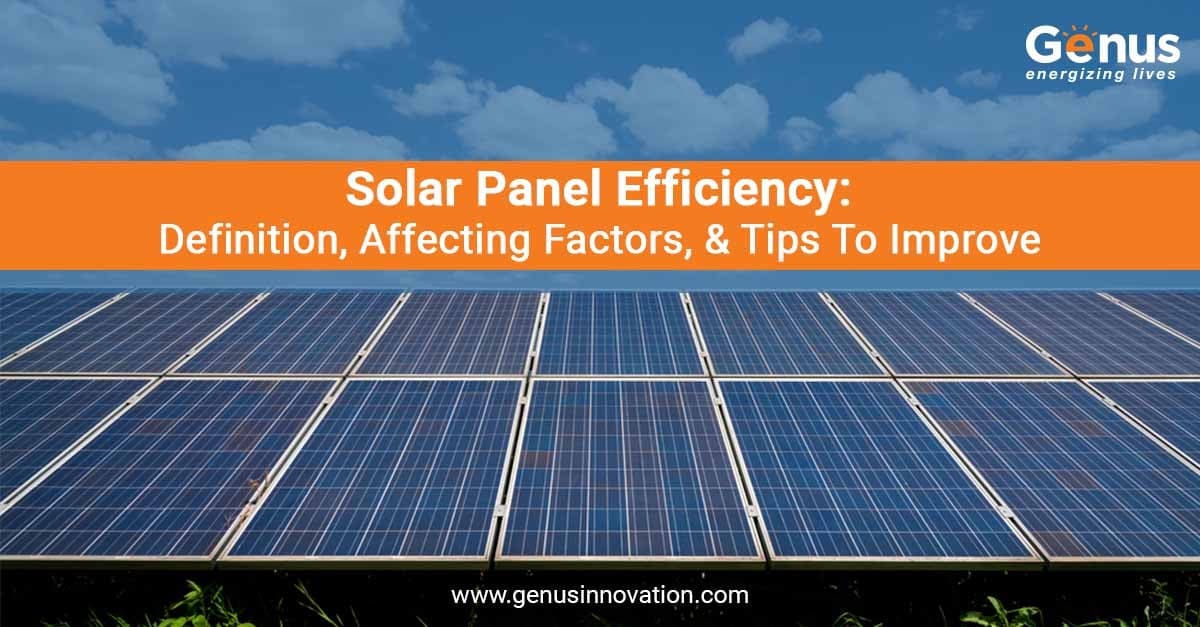Solar panel efficiency is a topic that has gained a lot of attention in recent years. As more people look for eco-friendly and cost-effective energy solutions, solar panels have become a popular choice for homes and businesses alike. While many have already made the switch to solar power, others are still considering it, often wondering how effective these systems really are.
So, how efficient can solar panels be, and what factors influence their performance? The efficiency of a solar panel depends on several elements, including the type of material used, the installation quality, and environmental conditions. In this blog post, we’ll explore ways to maximize the efficiency of your solar system and ensure you get the most out of your investment.

**What is solar panel efficiency?**
Solar panel efficiency refers to the percentage of sunlight that is converted into usable electricity. It’s calculated by comparing the input (sunlight) to the output (electricity). For residential systems, an average efficiency range of 18% to 20% is typical. However, high-quality panels can achieve even higher efficiency levels, making them a better long-term investment.
**Factors That Impact Solar Panel Efficiency**
Several factors can affect how well your solar panels perform. These include the materials used in the panels, the way they're installed, and the surrounding environment. Poor installation or obstructions like trees and buildings can significantly reduce efficiency. To find the best solar panel options in India, consider reaching out to experts like Genus Innovation.
**Panel Types and Their Efficiency**
Different types of solar panels vary in efficiency and cost:
- **Monocrystalline Panels**: Made from pure silicon, these are the most efficient and durable. They allow electrons to move freely, maximizing energy production.
- **Polycrystalline Panels**: Slightly less efficient than monocrystalline but more affordable. They’ve been around longer and offer good value for money.
- **Thin-Film Panels**: These are the least efficient but easier to install. They’re ideal for certain applications where space isn’t a concern.
**Real-World Influences on Efficiency**
Beyond the panel type, external conditions play a big role:
- **Weather**: Cloudy days may not affect performance much, but heavy rain or snow can block sunlight and reduce efficiency.
- **Panel Orientation**: Proper placement is crucial. Panels should face the sun directly and be angled correctly to capture maximum light.
- **Shading**: Even partial shading can drastically reduce output. Be sure to clear any nearby obstacles that might block sunlight.
**Tips to Improve Solar Panel Efficiency**
If you've already installed solar panels, here are some practical tips to boost their performance:
- **Clean Regularly**: Dust, leaves, and debris can block sunlight. Clean your panels at least once a month to maintain optimal performance.
- **Schedule Maintenance**: Have professionals inspect and maintain your system periodically to prevent damage and ensure everything runs smoothly.
- **Hire Experts for Installation**: A professional installer will assess your home's layout, roof structure, and potential shading issues to ensure the best setup.
- **Use Energy-Efficient Lighting**: Switching to LED lights can reduce overall energy consumption, allowing your solar system to work more efficiently.
At Genus Innovation, we specialize in providing top-quality solar panels tailored for both residential and industrial use. Whether you're looking to install solar panels at home or for business, we’re here to help you make the right choice. Contact us today to learn more about our solar solutions.
Potato Grater,Hand Crank Grater Cutting Machine,Electric Sweet Potato Grater,Agricultural Potato Grater
Hunan Nongle Machinery Co., Ltd. , https://www.nongleagro.com